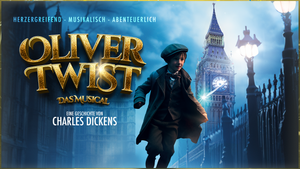Ben Becker – „Todesduell“ | LIVE in München
In the organizer's words:
About "Death Duel"
"Duel of Death" is perhaps the most famous sermon in the world, delivered by the eloquent metaphysical poet John Donne in the presence of King Charles I in 1631. These are John Donne's last words spoken in public before his death and eternal silence. Stricken by serious illness, he, the poet and preacher of St. Paul's in London, describes life as a duel with death, achieving a depth and urgency that goes beyond any sermon. His text is an explosion. True, harrowing, unsparing in its view of the transience of life and at the same time with a strength and hope that transcends death. In John Donne's "death duel", life wins.
As in his examination of "Judas", which began in Berlin Cathedral and thrilled over a quarter of a million spectators in an unprecedented series of performances, Ben Becker's "Death Duel" is about the ultimate questions. Becker's "Judas" was the vindication and rehabilitation of an unjustly ostracized figure, against all prejudice and hostility. "Todesduell" goes one step further: it is the fight against prejudices about death and for a changed view of the meaning of life.
The "death duel" is not only sensualized and taken further musically by the virtuoso playing of cathedral organist Andreas Sieling on the large Sauer organ as well as arrangements made exclusively for the production by Daniel Ott (MEA/Vienna). Ben Becker also pays tribute to the poet of the great duel with death with another text. "Great Elegy to John Donne" is what Nobel Prize winner Joseph Brodsky called his homage to the master of metaphysical poetry, whose "pupil" he described himself as throughout his life. There is no other work in which the echo of John Donne resounds so strongly and is transformed into remembrance and thought. With this "elegy", Ben Becker gives his "death duel" a fascinating finale and bows to the great poetry of John Donne.
This content has been machine translated.


